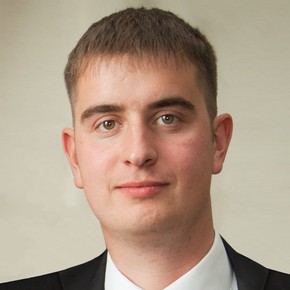Biography
Another resident of Ussuriysk was charged with extremism on the basis of religion. After the meeting in the café where the Bible was discussed, Anton Chermnykh will be in the dock. What do we know about him?
Anton was born in 1987 in Magdeburg, Germany, where his parents did military service under a contract. Anton has a twin brother Maxim. Later, the family moved to a military garrison in Krasny Kut (Primorsky Krai), and then to Ussuriysk. The father left the family, he does not keep in touch with his adult sons.
When Anton and Maksim were still young, their mother began to read the Bible and instilled an interest in it in her sons. Anton liked that the Bible clearly and clearly answers questions that many people find philosophical, such as what is the meaning of life and why is there so much suffering.
After school, Anton graduated with a degree in Applied Informatics in Economics. He worked as a software engineer in the housing and utilities sector, then as a worker in the city dentistry. I've always been fond of computers. Other interests: fishing and hiking, which now he cannot go out because of his recognizance not to leave.
In 2011, Anton asked the military registration and enlistment office to provide alternative civilian service (ACS). He passed it in a special department of a psychiatric clinic, where patients who have committed especially serious crimes and are declared insane lie. Paradoxically, now a peaceful person whose conscience did not allow him to take up arms will be tried for extremism.
In 2013, Anton married Ekaterina. She is a housewife, loves to draw, sew, skate. The couple have a daughter, Milana.
The criminal prosecution changed the whole life of the young family. Anton worries that his family may lose their husband and father. "Now I'm raising a daughter who is 5 years old," he says. "And in the case of a guilty verdict and serving a sentence, I will see my daughter when she is 15 years old. I grew up without a father, I know how difficult it is. I made a promise to myself that I would never repeat my father's mistakes and that I would never leave my child. And then there is a criminal case ... Anton's relatives are also very worried about what is happening and do not understand why he is being persecuted.
